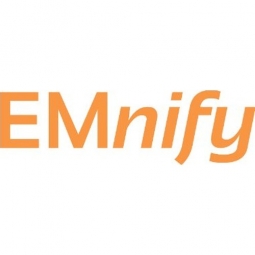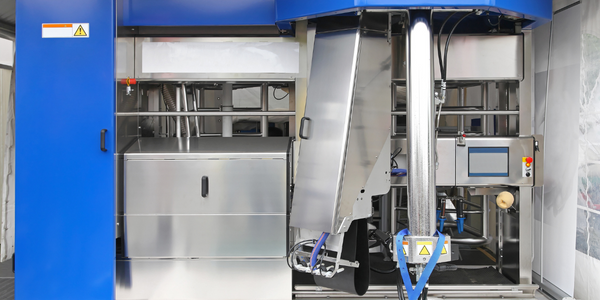Customer Company Size
Large Corporate
Region
- America
- Europe
Country
- Canada
Product
- Ukko Agro predictive analytics platform
- EMnify Global IoT SIM & LTE-M service
- EMnify REST API
- EMnify Web Portal
- EMnify IMEI Lock
Tech Stack
- IoT
- Predictive Analytics
- Machine Learning
Implementation Scale
- Enterprise-wide Deployment
Impact Metrics
- Productivity Improvements
- Environmental Impact Reduction
Technology Category
- Analytics & Modeling - Predictive Analytics
- Networks & Connectivity - Cellular
Applicable Industries
- Agriculture
Applicable Functions
- Discrete Manufacturing
- Quality Assurance
Use Cases
- Predictive Maintenance
- Remote Asset Management
- Farm Monitoring & Precision Farming
Services
- Cloud Planning, Design & Implementation Services
- Data Science Services
About The Customer
Ukko Agro is a Toronto-based company that operates in the agriculture industry. The company's goal is to make farming more profitable and sustainable. They have developed a predictive analytics platform that analyses hyper-local weather, soil, and crop data from the fields, providing insightful suggestions for farmers to optimize crop input applications. Beyond their deep analytics and advanced machine learning software, Ukko’s goal is to pull different pieces of the IoT puzzle together and deliver a single and easy-to-consume smart farming solution to customers. The company operates in the Americas and Europe and has over 1000 connected sensors across 6 countries on 3 continents.
The Challenge
Climate change and associated severe weather, pests, and diseases could reduce global yields by 30 percent by 2050. Ensuring food security for the growing world population requires innovative farming practices that improve crop productivity while keeping the environmental footprint to a minimum. Toronto-based Ukko Agro seeks to tackle this challenge. IoT applications in agriculture are not necessarily new, but the complexity involved has been a big challenge. Various components, from hardware, to connectivity, to software need to be set up, integrated, and managed effectively, which is a daunting endeavor for farmers and agricultural companies alike.
The Solution
Ukko works with multiple hardware manufacturers to equip sensor devices with a SIM card and preconfigured communications, allowing them to work out-of-the-box the moment they arrive at the customer’s field. The Ukko Agro platform aggregates granular data from in-field devices to monitor micro-weather and crop patterns and advise growers on irrigation activities, the best timing to spray pesticide and fungicide, as well as how much to spray. Switching to EMnify allowed Ukko to save on 20% of connectivity costs. EMnify’s LTE-M service, in particular, is the ideal choice for Ukko to connect low-cost sensor devices and future-proof their solution amidst 2G and 3G sunsetting. With ease-of-use at the heart of Ukko’s solution, the team leverages EMnify’s extensive API set to automate and simplify device provisioning processes.
Operational Impact
Quantitative Benefit

Case Study missing?
Start adding your own!
Register with your work email and create a new case study profile for your business.
Related Case Studies.
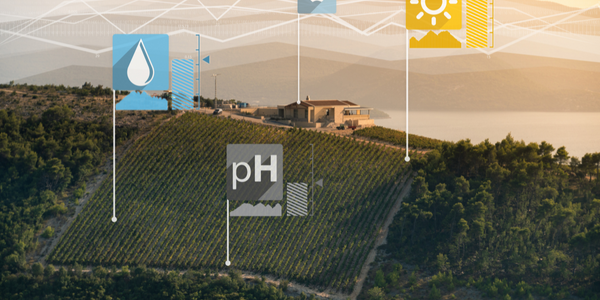
Case Study
Intelligent Farming with ThingWorx Analytics
Z Farms was facing three challenges: costly irrigation systems with water as a limited resource, narrow optimal ranges of soil moisture for growth with difficult maintenance and farm operators could not simply turn on irrigation systems like a faucet.
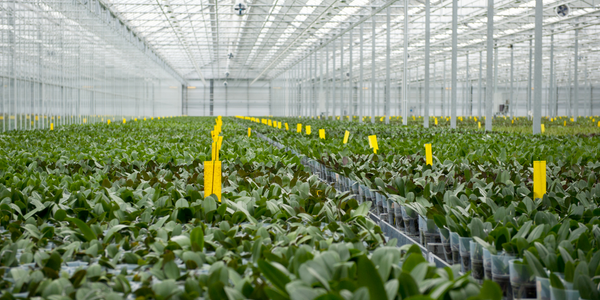
Case Study
Greenhouse Intelligent Monitoring and Control Solution
Farming Orchids is the most successful form of precision farming in Taiwan, and also the most exported flower. Orchids need a specific temperature and humidity conditions to grow and bloom, and its flowering time may not be in line with market demands, so the price collapses when there is overproduction. Therefore, some farmers began to import automated greenhouse control systems for breeding and forcing, which not only improves quality, but also effectively controls the production period and yield to ensure revenue. In 2012, an orchid farmer built a Forcing Greenhouse of about 200 pings (approximately 661 Square Meters) in Tainan, Taiwan. The system integrator adopted Advantech’s APAX-5000 series programmable automation controllers to build the control platform, coupled with Advantech WebAccess HMI/SCADA software, to achieve cloud monitoring. The staff of the orchid field can monitor important data anytime via smart phone, iPad, and other handheld devices, and control the growth and flowering conditions. System requirements: In the past, most environmental control systems of orchid greenhouses in Taiwan used PLCs (Programmable Logic Controller) with poorscalability and control, and could not be connected to the Internet formonitoring from the cloud. For advanced database analysis and networking capability, the PC platform must be adopted. Therefore, PAC Systems (Programmable Automation Controller) with both PLC programming capabilities andPC functions is a better choice.The environmental control of the Orchid greenhouse switches on and off devices like fan, shade net, cooling/heat pump, liquid flow control, water-cooling wall etc. It is controlled by a control panel of electric controllers, and is driven by a motor, to adjust the greenhouse temperature, humidity, and other environmental conditions to the set parameters.
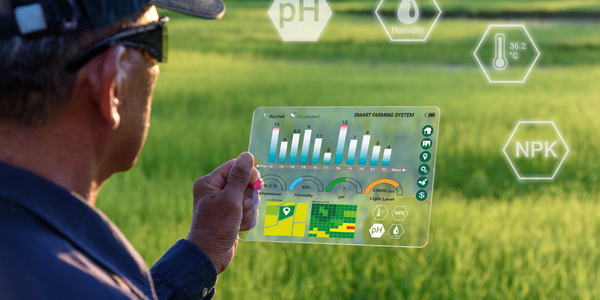
Case Study
Enabling Internet of Things Innovation in Agriculture
DigiBale, wanted to apply technology know-how and IP from implementations successfully to more agriculture sectors including cotton, forestry, sugarcane and cattle. However, farmers and growers still have worries about the connected technology.
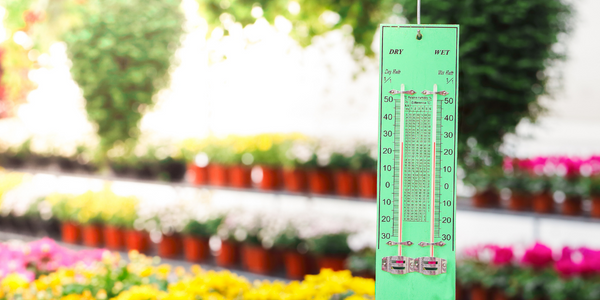
Case Study
Precision beekeeping with wireless temperature monitoring
Honeybees are insects of large economic value and provide a vital service to agriculture by pollinating a variety of crops. In addition, bees provide us with valuable products such as honey, beeswax, propolis, bee venom, etc. Monitoring of honeybee colony health, population, productivity, and environmental conditions affecting the colony health have always been exceedingly difficult tasks in apiculture. Research has shown that even small deviations (by more than 2°C) from the optimal temperatures have a significant influence on the development of the brood and the health of adult bees.

